Trio raises money for Coronavirus relief efforts
They are calling it Clipping for COVID-19. Three men, two of whom are roommates, have raised a lot of money for coronavirus relief efforts that will directly impact people in Metro Detroit.
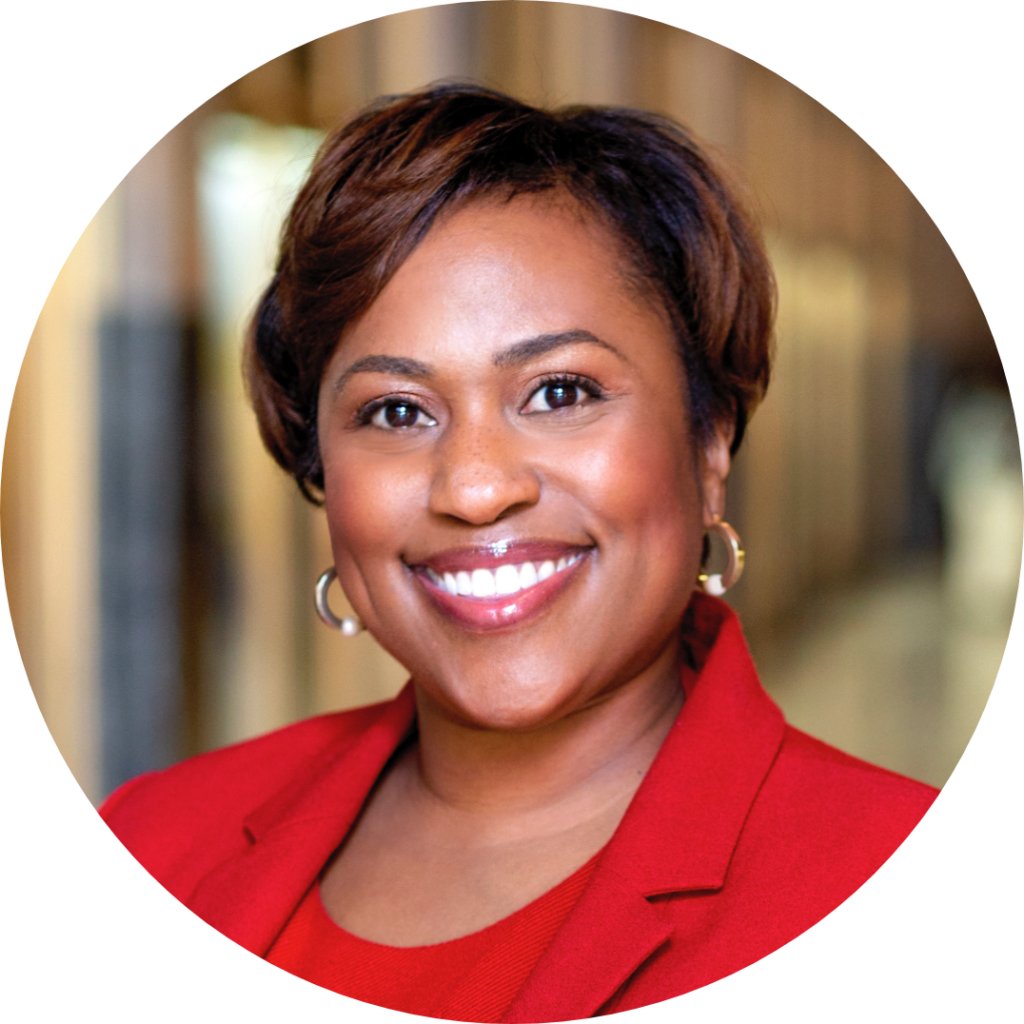
The events of the past two years have tried us in so many ways. Between the ongoing struggle with a deadly pandemic and the economic challenges it wrought, the growing and changing need in our community, and the acts of violence which continue to lay bare the scars of inequity and injustice that we must still heal, this has been an extremely challenging time for us as individuals and as an organization.
The ALICE report shows us that before the first case of COVID-19 even appeared in Michigan, nearly 40 percent of households were already struggling to cover the cost of basic needs. For Black households, more than 60 percent could not afford to get by. The overwhelming majority are working people living paycheck to paycheck for whom the economic, educational and health impacts of the pandemic have made things worse. And, once again, Black, brown, immigrant, indigenous and disabled communities are disproportionately impacted.
There is much to be done before we can say that every household in Southeastern Michigan is financially stable, and every child has the opportunities, resources and support they need to thrive. But as we reflect on our work at United Way and the impact we’re having on lives in the community — made possible by your tireless support as donors, advocates and volunteers — we find the strength to keep pushing forward.
When COVID-19 arrived in Michigan in March 2020, United Way immediately sprang into action. Together, we put more than $35 million back into the community through our COVID-19 Community Response Fund.
In addition to that, in the past year we mobilized more than 13,800 volunteers, engaged thousands in advocating for federal pandemic relief, and forged new and exciting partnerships — from neighborhood churches to the Black Entertainment Television Network.
We launched a Diversity, Equity and Inclusion Committee to ensure that we are putting social justice at the center of all we do. We embraced new challenges and collaborated with community partners to improve access to COVID-19 testing and vaccinations, promote digital equity for students and seniors, and ensuring shelters, schools, child care centers had the personal protection equipment they needed to continue providing essential support services. In December of 2020 we humbly accepted the largest gift in the history of our United Way from philanthropist MacKenzie Scott, which will help ensure that as our community continues to weather this storm – United Way will always be there. Our institution remains as a steadfast beacon of hope shining light on all the good we can do and the lives we can change when we Live United.
The work continues, and thanks to the unwavering support of the individuals, companies, foundations, unions and nonprofits that partner with us, we are creating real change. Together, we are making metro Detroit a symbol of recovery, resiliency and renewal. These are challenging times, but we remain hopeful and dedicated to our vision. Thank you for all that you do.
Learn more about our commitment and join us as we continue to work toward equity and justice.
In 2020, the racially disparate impacts of the COVID-19 pandemic shined a spotlight on the historic and ongoing inequities, discrimination and oppression in the United States. At United Way, we channeled our frustration and desire for change into reenergizing and growing our commitment to equity, launching internal and external efforts to ensure equity is at the forefront of everything we do.
We are committed to this work, guided by the ardent support of our donors, advocates and volunteers. Join us as we continue the fight for equality and justice.
The pandemic has disproportionately impacted Black people and other people of color. Systemic health and social inequities have put many at a higher risk of getting sick and dying from COVID-19, according to the Centers for Disease Control and Prevention.
In 2020, we partnered with BET, Harlem Children’s Zone and Choose Healthy Life to help address the health and economic impacts of the pandemic in communities of color.
In April 2020, BET’s star-studded “Saving Our Selves” telecast raised more than $16 million to distribute to United Way chapters in cities where the Black community had been disproportionately impacted by the COVID-19 crisis.
United Way for Southeastern Michigan received $2.8 million to work with partners providing relief.

Our job is to help remove any and all barriers wherever they are.
We’re thankful to BET for helping us with that and recognizing us.”
What we’re offering is a safe place for people to recover, prevent rehospitalization and make more efficient use of available hospital beds. We couldn’t have done that without United Way.”
In July 2020, we received $2 million from Harlem Children’s Zone to support families of color disproportionately affected by COVID-19 and financial challenges. The goals for those funds include protecting vulnerable populations, bridging the digital divide, preventing learning loss, mitigating the mental health crisis, and providing economic relief and recovery.
United Way chapters across the country had to create new partnerships to combat the COVID-19 pandemic in Black communities and other communities of color. In November 2020, United Way of New York City partnered with local and national clergy leaders to launch community-focused testing, education and vaccination efforts in five cities across the country, one of which was Detroit.
Here, our United Way worked with New Destiny Christian Fellowship church and the Rev. Horace Sheffield III to launch COVID-19 testing, as well as vaccination clinics, in the spring of 2021.

Though the work we did in Southeastern Michigan to address the serious issues that face our community was done without hope for fanfare, we were proud to receive recognition from local and national media outlets and partners over the past year and a half.
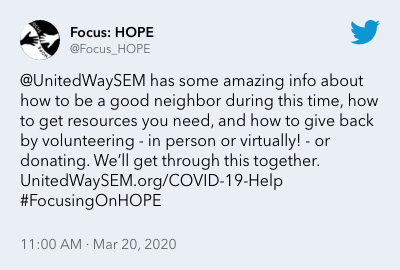
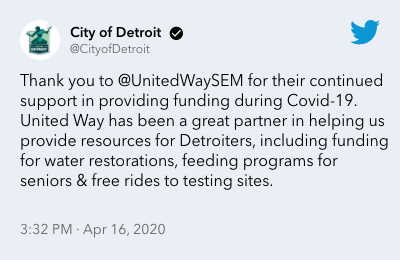
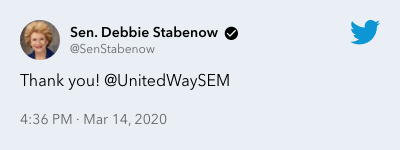



They are calling it Clipping for COVID-19. Three men, two of whom are roommates, have raised a lot of money for coronavirus relief efforts that will directly impact people in Metro Detroit.
We recognize many families already struggle to survive, and many will be impacted even more during this time of crisis. Our goal is to support those in need and the organizations that support them,” Darienne Driver Hudson, Ed.D., president and CEO of United Way for Southeastern Michigan.
United Way of Southeastern Michigan has launched a $10 million campaign to raise emergency grant funding for organizations during the COVID-19 pandemic.
As the pandemic set in and devastated our region and the world, United Way and our partners sprang into action. As a result, we created the COVID-19 Community Response Fund. As of March 31, 2021, we distributed almost $36 million across 1,054 grants to hundreds of partners across our region. Funds helped with food distribution, shelter, and financial and educational resources. Grants helped health and human services agencies close operational gaps and explore innovative ways to provide services during this unprecedented crisis.
It was a monumental impact, and your support made it all possible. Our corporate and governmental partners, along with thousands of individual donors, were there when our community needed us most.
Learn more about our COVID-19 impact and see our live dashboard with up-to-date results.
SEE THE IMPACT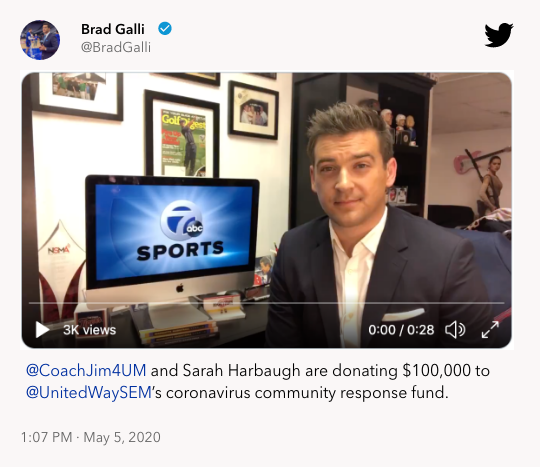

Haircuts for charity, marathons around the block, YouTube livestreams — when it came to COVID-19 recovery, community fundraising got creative. As the impact of the pandemic worsened, individuals from metro Detroit and beyond pitched in to raise funds and help those in need.
To everyone who shared their talent, turned their birthday into a fundraiser and dug deep to help your neighbors in need: Thank you!
Read “Stay Apart, Stand United: Michiganders Get Creative to Help Their Neighbors”
READ THE FULL STORY
A strong network of hundreds of United Way partners powers our battle against COVID-19. In 2020, those partners helped our COVID-19 Community Response Fund surpass $37 million raised. As of March 31, 2021, we have distributed nearly $36 million to our partners across Wayne, Oakland and Macomb counties and beyond.
These hundreds of partners implemented, expanded and enhanced programs to help those impacted by the pandemic meet their basic needs and find the assistance necessary to get through this crisis.
United Way works as a convener, exploring innovative ways to provide our community with the resources it needs. During 2020, that commitment resulted in the creation of our virtual town hall series, “What’s the Word Wednesdays.” These weekly livestreams feature presentations from experts on relevant topics like child care, virtual learning, unemployment and utility assistance. They also give individuals the chance to ask questions and get real-time responses.
In the summer of 2020, our town hall series expanded to include a focus on equity issues. We kicked things off with a special town hall on the state’s Coronavirus Task Force on Racial Disparities, featuring Lt. Gov. Garlin Gilchrist.
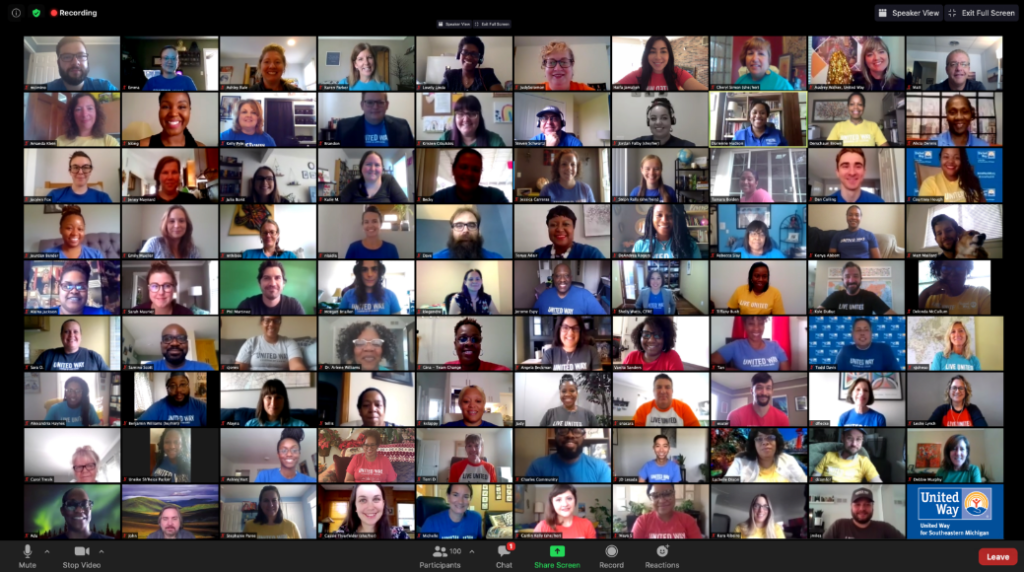
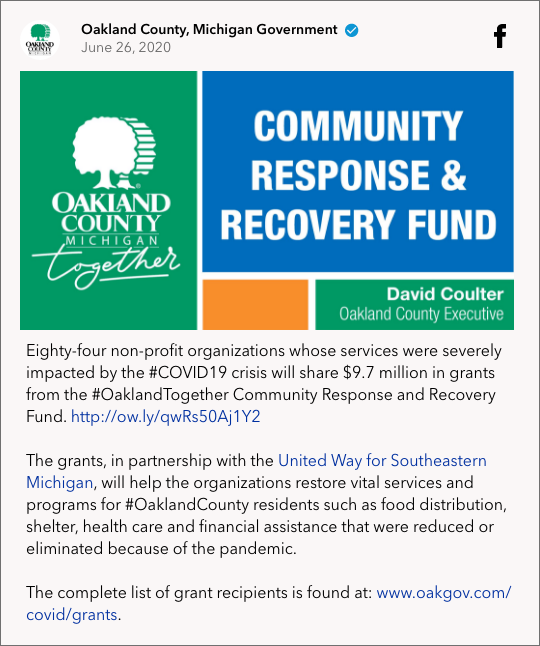
We teamed with Oakland County to launch the Oakland Together Community Response Fund in June 2020, which distributed grants to partners assisting individuals and families in need. Our partnership with the county also led to the distribution of grants of at least $500 to individuals and families in the county to cover expenses or gaps in income resulting from the pandemic. Early childhood care providers that serve essential workers received grants as well.
READ MOREIt’s also a connection to programs that help families address the factors that cause instability, like a lack of reliable income or affordable quality child care.
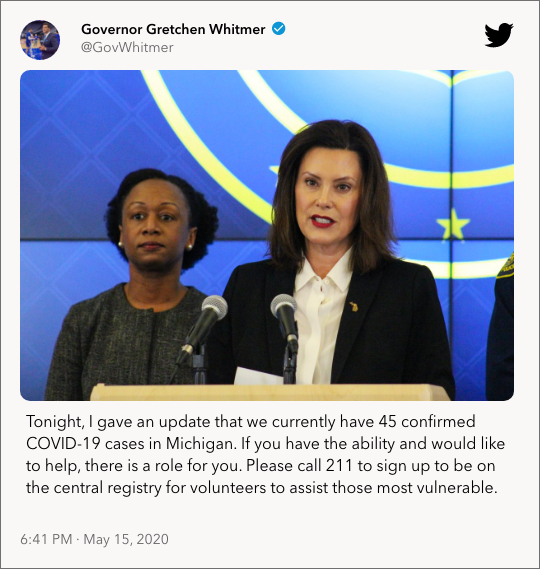
A gift from Roush Industries to grow our 2-1-1 call center operations played a big role in our COVID-19 response.
Thank you, Roush!
The $300,000 gift the company provided in 2019 helped purchase laptops and other supplies to allow 2-1-1 staff to work safely and efficiently from home, connecting caller after caller to essential resources in a time of crisis.
In 2-1-1, we deal with crisis every day. But the COVID-19 pandemic is like nothing we’ve ever experienced.”
Though some programs and initiatives paused during the pandemic, the support of our partners and donors helped us create innovative ways to move online or provide services in new ways, keeping our neighbors safe while making sure no one went hungry or homeless.



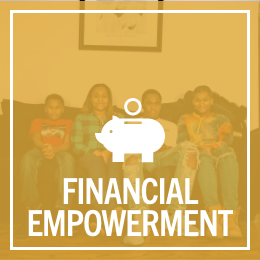
Learn about how we worked to expand breakfast in Oakland County schools.
READ THE FULL STORY
We lead efforts in Southeastern Michigan to fight food insecurity and increase access to food that is nutritious and affordable. Our Better With Breakfast initiative helps ensure that more students start their day in a nutritious way. Mobile food carts allow students to grab a free breakfast and take it to the classroom.
Prior to COVID-19, we teamed with partners like Oakland County Schools to make free school breakfast more widely available. This partnership led to more than 2,500 additional students eating school breakfast each day in the schools where we helped to implement expanded breakfast programs.
During the pandemic, schools have worked tirelessly to ensure that students continue to have access to healthy meals. As schools resume in-person instruction, students across our region will continue to be met with expanded access to school breakfast and alternative breakfast models such as breakfast in the classroom or grab-and-go carts in the hallways.
When the pandemic forced closures of businesses and loss of jobs, the number of people in our region struggling with food insecurity skyrocketed. Community organizations and food pantries reported lines around the block and requests for food doubling or tripling.
Local restaurants and municipalities got creative, using surplus food and shuttered kitchens to serve meals to thousands. And United Way provided more than $13 million in grants to our nonprofit, city and school partners across the region to increase food access as need grew.
While many working Michiganders were able to stay at home during statewide shutdowns, shelters stayed open to help our community’s most vulnerable citizens be safe and receive crucial services.
With donor support, grants from United Way’s COVID-19 Community Response Fund helped cover increased operating costs for cleaning supplies, personal protection equipment and staff support at the shelters.
Like the doctors, nurses and essential employees on the front lines of supporting the community, child care providers and nonprofit workers deserve to know that when they go to work, they can stay safe. However, many of them had difficulty obtaining and affording personal protection equipment.
With donor support, United Way’s COVID-19 Community Response Fund provided thousands of masks and gloves, gallons of sanitizer and other supports to individuals working at child care facilities serving the families of essential workers, as well as nonprofit organizations and schools helping people meet their basic needs.
As the state pushed for increases in COVID-19 testing in the spring of 2020, we sprang into action, investing in the health of our community. United Way partners like ACCESS and the city of Detroit stepped up with innovative ideas, like mobile and drive-up testing facilities.
Funding from United Way’s COVID-19 Community Response Fund helped bring those ideas to fruition. During the peak of drive-up COVID testing, this funding helped ACCESS screen people and administer more than 1,000 tests per week.
Every year, as temperatures drop, thousands of households fall behind on utility payments and face the possibility of having their heat or electricity shut off. Thankfully, with the support of partners like DTE Energy and Consumers Energy, United Way’s Michigan Energy Assistance Program is able to help many of these households pay down past balances and get on affordable payment plans.
Carolyn Bird of Detroit was one of those individuals facing shutoff in 2020 after the pandemic forced a cut to her work hours, and struggles with transportation meant she had to pay for daily Lyft rides. But with help from our 2-1-1 helpline and MEAP team, Carolyn got the assistance she needed.
I wish more people would know what it’s like to walk in our shoes.
Then they’d understand that we need more support programs and we need more relief from COVID. It’s still not over.”
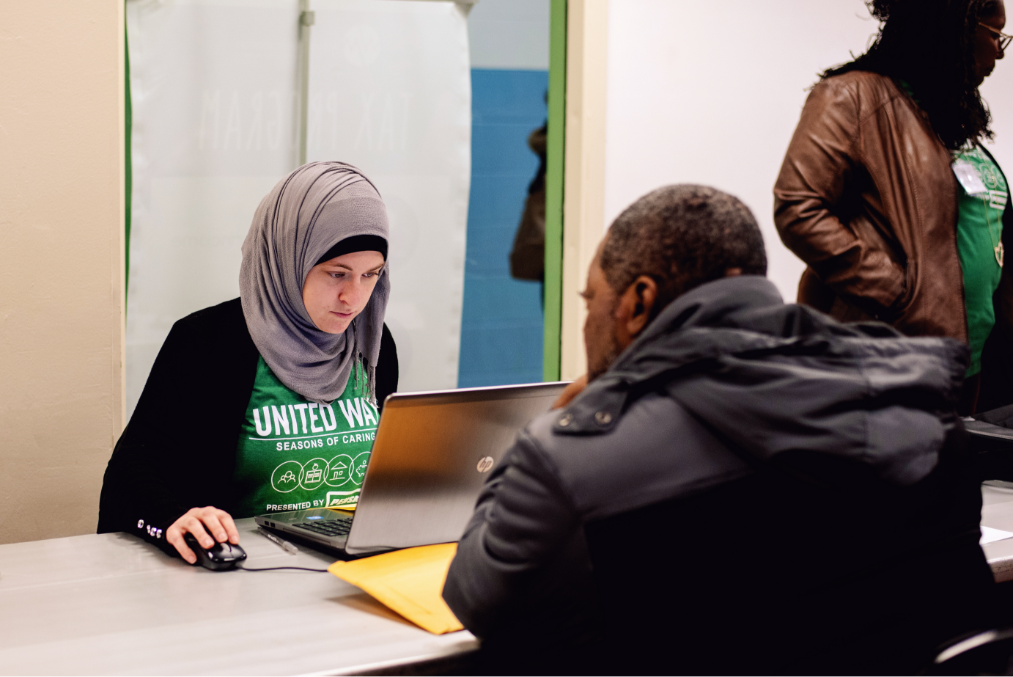
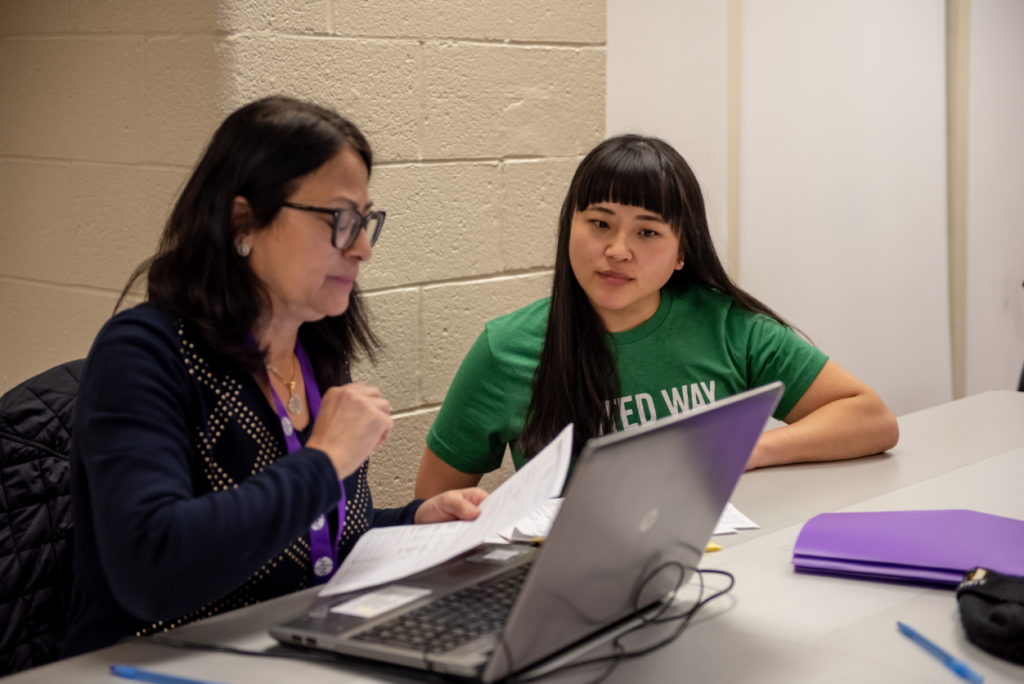
United Way has partnered with the city of Detroit, Accounting Aid Society and Wayne Metropolitan Community Action Agency to ensure individuals know about the EITC. We also help connect them with volunteer tax preparation services to get the full refund they deserve.
In 2020, despite the pandemic, nearly 90,000 Detroiters claimed a total of nearly $310 million through the Earned Income Tax Credit. Our efforts continued in 2021, helping people navigate changes to tax law brought about by federal pandemic relief efforts.
These tax credits often mean the difference between financial crisis and stability for households struggling to make ends meet.
United Way-funded Greater Detroit Centers for Working Families (CWF) help thousands of people each year become financially stable and grow their wealth.
At CWFs, coaches help people increase their income and change their financial behavior so they can more consistently make ends meet, feel less financial stress, afford the things they value in life and build a strong financial foundation for the future.
During the pandemic, this work continued safely and virtually at all CWF sites.
Our team of quality improvement consultants works directly with child care providers to work on their individual needs, increasing the quality of care they provide and the quality of their facility. And we provide education and support through our Early Childhood Support Network: a state-funded effort to make it easier for parents to navigate child care and help their children reach developmental milestones.
We also strive to equip families with tools and knowledge to help their children succeed, like their child’s first book and developmental screenings.
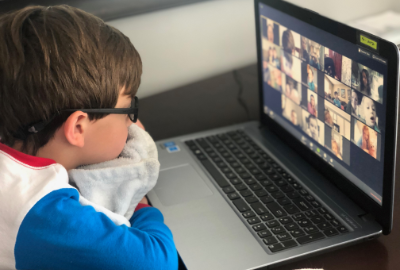
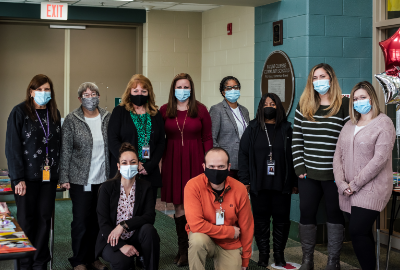
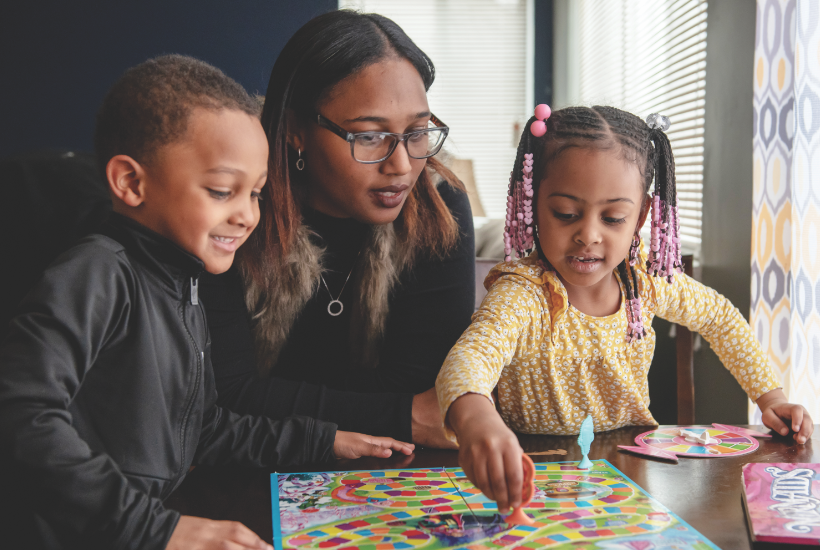
I was one of those moms who spent hours trying to research who’s open and who’s licensed. To get it all in one place with quality data saves people so much time and headaches.”
In Detroit, more than half of families with children age 5 and under qualify for assistance with child care costs. That’s why in 2020, with support from AmeriCorps, we launched Connect4Care Kids.
For Detroit families, this web and text message-based tool simplifies the process of finding care that meets their budget and their needs — including virtual learning.
This really is more than just giving a teacher a better opportunity. This is about giving our community something we can see in five or 10 years.”
Our support of early childhood education programs was a priority throughout the fiscal year, and the Child Development Associate (CDA) program was a key component of our strategy.
The program helps train caregivers and increase the overall quality of care throughout the region. In addition to sharpening their skills, caregivers are able to earn more money once they are certified. United Way funding covered the cost for caregivers to participate in the program.
As the pandemic set in, our COVID-19 Community Response Fund helped child care facilities stay safe and stay open to care for the children of essential workers.
Our Early Childhood Support Network referred more than 400 essential workers across seven counties to available care so they could continue to go to work while meeting their child care needs.


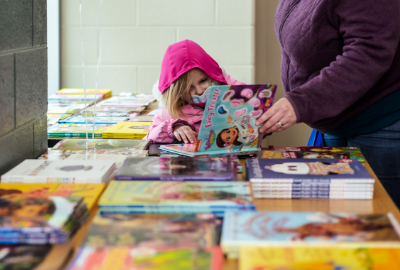
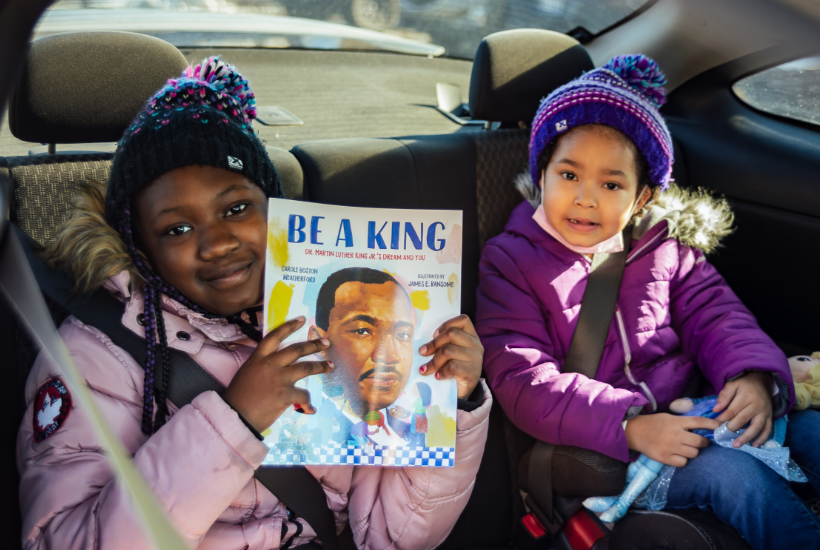
Even before students start school, hitting literacy milestones is an important indicator of a child’s future success in school and life. But not all children have the same opportunities to learn and grow. We work with metro Detroit schools to increase equitable access to books and literacy supports for students and their families. Using virtual tools like our READY4K text messaging system and our virtual literacy fairs, this work has grown during the pandemic to serve more families in our region.
We teamed with Scholastic to launch the MyHomeLibrary program in December 2019 at schools in Pontiac. Guided by volunteers, more than 1,000 students perused the options at the initial book fair, selecting five new books to take home free of charge. Though COVID-19 temporarily disrupted the program, the effort was reinvigorated in late 2020 with plans to safely expand to Detroit, bringing books to more children in both cities.
Literacy stands out as the issue with the biggest need for support in Pontiac schools, so we wanted to provide an opportunity to help students excel. Having their own books is part of how we make sure they have the literacy skills they need to thrive not only in school, but beyond.
The Oakland Press · Dec 17, 2019
READ MORE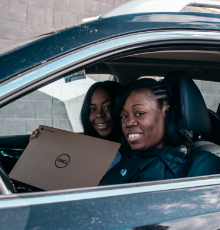
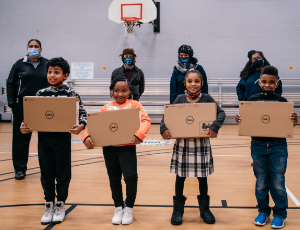
Connected devices are the pathway to an awful lot of places. Without access, students have a very limited view of the world. It’s the way to apply for jobs, to find resources or to look for a new home if a family gets evicted. It’s everything.”
As the pandemic set in and schools shifted to virtual learning, the digital divide became more evident than ever. For 35 percent of students in Detroit, that posed a major problem — they lacked access to the technology they need to learn. We’re working to change that. Since the beginning of the pandemic, we helped nearly 80 schools purchase technology for students who otherwise would’ve had no way to learn from home.
Every year, United Way’s Run United team brings together runners and walkers from our corporate partners, as well as the community, to raise funds that are used to help create more stable households where children can thrive. Led by FCA-North America, the effort went virtual in 2020 and attracted hundreds of individuals who walked, ran and biked to raise funds to help close the digital divide in Detroit.
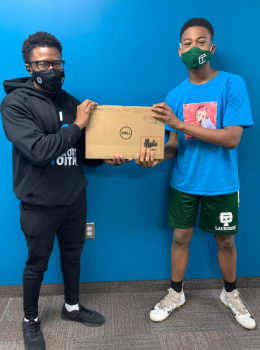
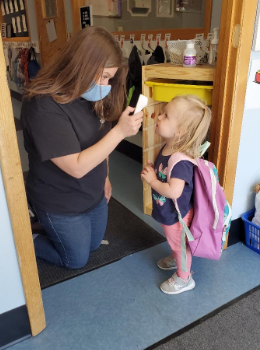
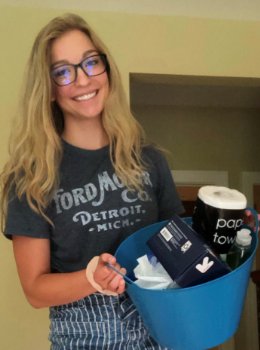
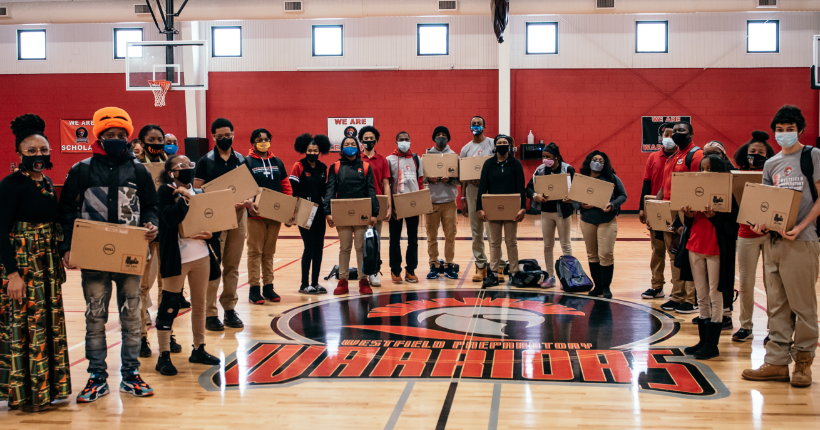
According to the state of Michigan, one in four Michigan households still lacks access to high-speed internet — and the problem is most prevalent in low-income and Black households. In 2020, as classrooms went remote and everything from doctor’s appointments to gatherings with family and friends went virtual, thousands of households in Southeastern Michigan were stuck without a way to learn or connect.
We’re working toward closing the digital divide, connecting students with laptops, seniors with tablets and families in need with the tools required to connect to the digital world.
It’s a team effort. To close the digital divide, we’ve joined the Connect 313 task force, which aims to provide internet access, technology and digital literacy programming within a 10-minute walk of every Detroit resident’s home. We’ve also teamed with organizations like Harlem Children’s Zone, the Detroit Pistons and Quicken Loans to raise $3.6 million to provide laptops, internet access and other digital supports to more than 33,000 students in Detroit.
We need to move quick, because this is a pandemic — and I’m not saying COVID, I’m saying poverty. We can’t lose another generation to (poverty).”
Whether in-person or virtual, our commitment to supporting the varied and changing needs of students and their families will continue.
Through our Community Schools initiative, United Way has shepherded relationships with districts including Pontiac, Southfield, Hazel Park and River Rouge, helping to assess student, family and community needs, and put in place the funding and infrastructure to address those needs. From access to laptops and internet to literacy and basic needs supports, Community Schools are United Way partners committed to building up students through support of families.
In spring 2021, we initiated requests for proposals to schools across our region, formally launching these efforts for the 2021-22 school year.
United Way and our network of hundreds of partners offer services to help individuals and families in crisis. But there are still so many barriers to accessing help, like lack of transportation and child care, and confusing systems to navigate. When we combine the power of United Way’s 2-1-1 helpline with our robust network of United Way partnerships, we can ensure that people get exactly what they need to get out of crisis and reach stability.
Powered by a database of community data and tens of thousands of resources and programs, we’re working to launch a full-scale Family Support Service Hub.
Through virtual and 2-1-1 call center support, as well as in-person partnerships with local health systems and other partners, individuals will receive both referrals to food, housing, job training, health care and other services, as well as personalized assistance to ensure their success, like free transportation, appointment scheduling, and one-on-one care coordination.
We’ve already seen the success: Our Ride United program offers free rides to employment and job training. We’ve also partnered with Henry Ford Health Systems to develop better a system of coordinated care focused on food insecure seniors. This work has already received national recognition through the Administration for Community Living’s Social Care Referrals Challenge.
Efforts to expand food access and health care are in progress with results expected this summer.
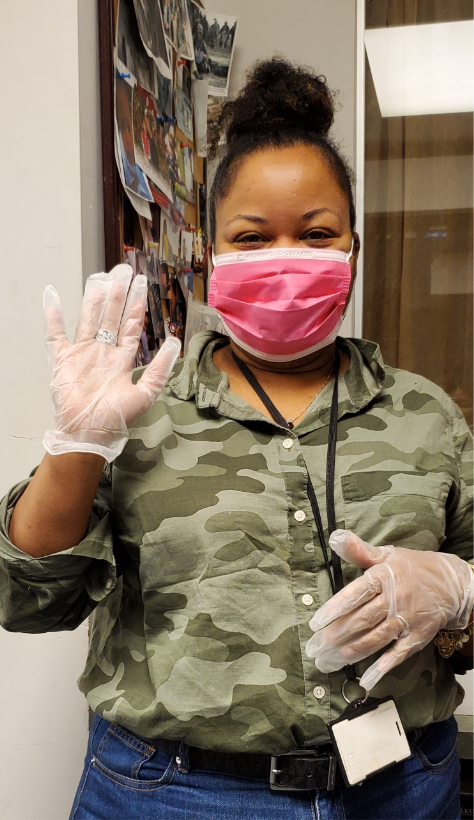
In March 2020, our entire world changed. But although we have had to adjust to the rapidly shifting needs of our community in this time of crisis, our commitment to the community has never faltered.
With the support of our thousands of donors, advocates and volunteers; and alongside our network of hundreds of partners, United Way responded to a community in crisis with swift action, providing critical funding to keep food pantries, child care centers and homeless shelters open; assisting with volunteer support as need grew; and advocating for policies that kept families afloat and opened doors of opportunity and personal growth.
The impact made by United Way for Southeastern Michigan and our hundreds of partners is powered by individual, family, corporate and foundational gifts from people who care about their neighbors, as well as organizations that make giving back part of their mission.
But in an unprecedented year, United Way donors, advocates and volunteers stepped up in an unprecedented way. Whether it was a unique fundraising idea, a virtual volunteer opportunity or a push for more COVID-19 relief, United Way supporters found new, impressive ways to Stand United, even as the pandemic forced us to stay apart.
Some of United Way’s most dedicated supporters join one of our giving societies. In these specialized groups, like-minded people team with peers to make a big impact together.
We are in our 16th year as members of AdT because we feel it is important to give back to our local community. The mission, goals and strategy developed by United Way for Southeastern Michigan lay out a clear path for making a difference in metro Detroit. We believe that United Way provides an effective way of generating the greatest positive impacts from our donations.”
In 2019-2020, more than 500 of the most generous people in our community were part of our Alexis de Tocqueville (AdT) Society. Together, they gave close to $6 million to United Way for Southeastern Michigan. That support helped us ensure that, during a tremendously difficult year, families struggling to meet their needs would have somewhere to turn for help.
During the fiscal year, Hans-Werner and Anke Kaas continued their leadership journey as co-chairs of our AdT Society.
“We are eager to create a legacy that is worthy of the chairs who have served before us and work alongside each of you to drive change and resources to our communities,” they said.
Working with the Women United group allows me to make a positive, lasting difference in the lives of others. I love being a part of this fabulous group!”
Throughout the year, Women United members continued their commitment to supporting early childhood education, giving their time, talent and treasure to supporting child care educators and the children in their care.
On March 6, 2021, Women United hosted its fifth annual Women of Influence Summit. More than 500 people attended the virtual event, raising over $158,000 to help train child caregivers and expand access to quality child care in Southeastern Michigan.
I joined Emerging Philanthropists to work with like-minded professionals looking to give back to our community.”
As the pandemic hit, our Emerging Philanthropists members remained committed to helping us build stable households where children can thrive. The more than 130 members gave over $100,000 collectively to United Way in 2019-2020, and continued to give their time and talent to support our work.
In a very short time, Tech United has assembled a group of technology leaders who are passionate about leveraging our skills, networks and the resources of our companies to help solve metro Detroit’s K-12 digital divide. It’s been a privilege to brainstorm with talented technology leaders and partner with United Way for Southeastern Michigan.”
As the pandemic continued and the digital divide grew, United Way worked with Anup Popat, chairman and CEO of Systems Technology Group, to mobilize the region’s top technology executives. Together, those chief information officers and chief digital officers from large enterprise companies are convening around three priorities for United Way’s Community Schools:
• Closing the digital divide.
• Increasing STEM exposure for students.
• Creating STEM mentorship opportunities for students.
Chief information officers from Blue Cross Blue Shield of Michigan, BorgWarner, Comerica, DTE Energy, Lear Corp. and Quicken Loans committed to joining the Tech United board.
Alumni United allows me to continue my relationship that I had developed with United Way while working, and to remain connected to the metro Detroit community and its philanthropic needs. Through Alumni United, I am able use my professional skills, talents and knowledge in a wide variety of programs to help the community and collaborate with other Southeastern Michigan retirees.”
With a focus on philanthropy post-retirement, Alumni United members are there to lend a hand when the community needs them most. Together, they volunteered, both before the pandemic set in and after COVID-19 changed the needs of our community and the ways volunteers could get involved.
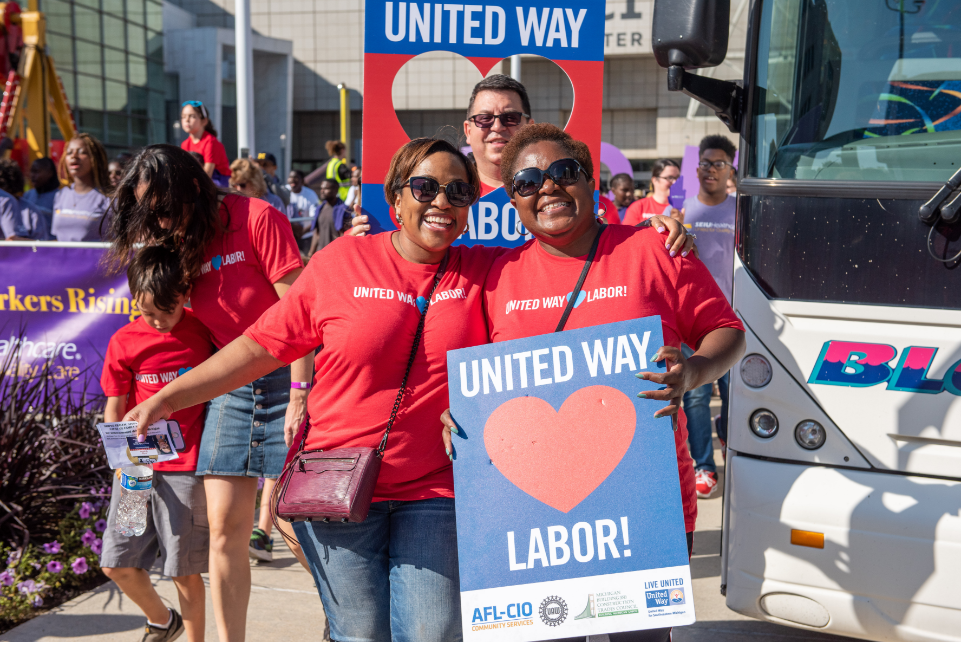
For nearly as long as United Way for Southeastern Michigan has served our region, labor unions and the thousands of members have been critical partners in giving and volunteering to support families in need in our communities.
During the COVID-19 pandemic, this partnership continued, with United Way supporting labor efforts to keep workers safe and help them access resources, volunteer opportunities and ways to connect with each other safely and virtually.
Help us push for local, state and federal policies that make a difference in the lives of metro Detroit families.
Throughout the pandemic, advocates used their voices to push for federal relief for struggling families and communities. Our advocates helped keep the pressure on legislators to pass critical federal and state relief packages that provided much-needed funds for tight household budgets, and cash-strapped cities and schools.
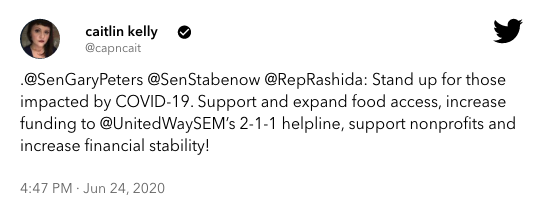
Our advocacy efforts help working families in our region keep more of what they earn. That’s why we continue to work to push for an increase in the Earned Income Tax Credit, widely recognized as one of the most effective anti-poverty, pro-working family investments we make as a community.
So far, more than 70 advocates have made nearly 400 connections with lawmakers to speak out in favor of this legislation.
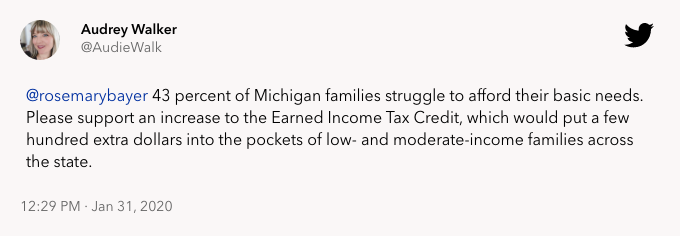
From medical workers to grocery store employees to child care workers, frontline workers have been our heroes, keeping our community running even as the pandemic raged. United Way fought for these workers, leading a push for the Futures for Frontliners program. Launched in September 2020, this program gives essential workers a path to a free community college education.
Our push for expanded education didn’t end there. Another top priority was the Michigan Reconnect Program, which provides a tuition-free pathway to an in-demand industry certificate or associate degree for Michiganders 25 and older. This program received $35 million in funding in March 2020, helping adults take the next step in their careers and creating an avenue for displaced workers to reenter the workforce. It also helps employers find talent and helps market the state as a place with a highly skilled population.
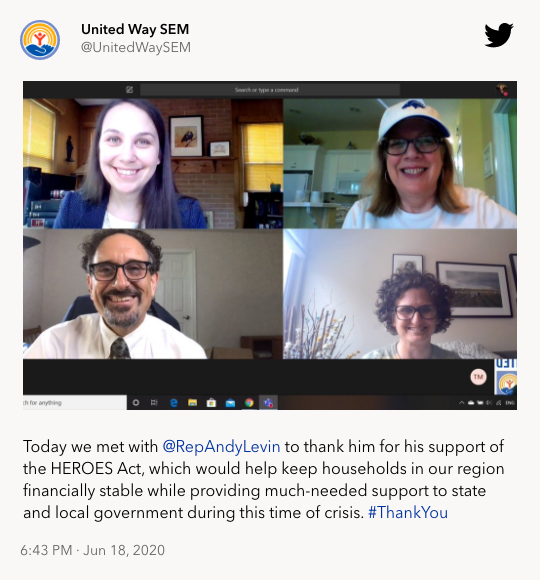
The pandemic didn’t slow down our efforts to connect with elected officials and urge them to support policies and funding that would help those who needed it most. During the past year, we met with hundreds of local, state and federal legislators virtually to share updates about our COVID-19 response, our 2-1-1 helpline and the realities faced by families that fall beneath the income thresholds identified in United Way’s newest ALICE report.
Our work to create systemic change through public policy is only possible with the support of our advocates. Learn more about our advocacy efforts and join us.
Our partner, Penske Corp., helped make it possible, investing $500,000 over several years to support and strengthen United Way volunteer efforts in Southeastern Michigan.
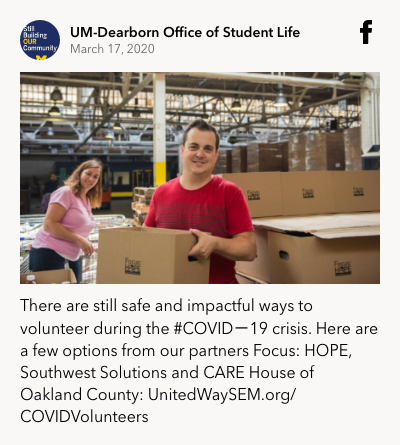
Sometimes making a difference is as simple as a trip to the store. In 2019 and 2020, United Way’s DIY kits were a hit with volunteers looking to give back in a fun and simple way. Volunteers purchased materials from a provided list and built hygiene, education and family support kits to be delivered to community organizations.
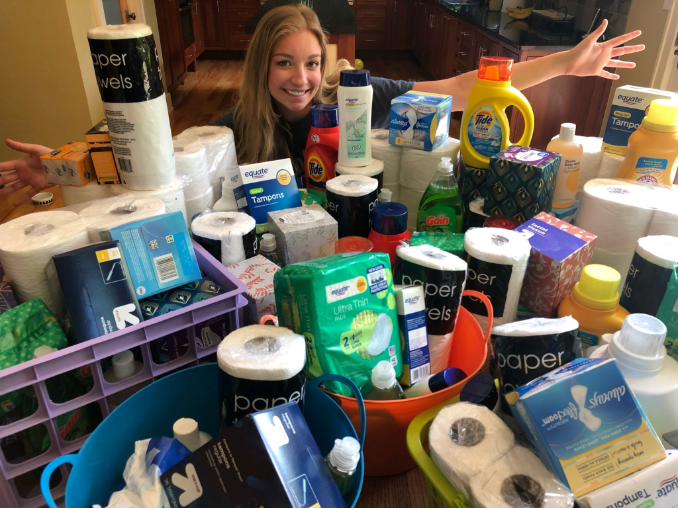
As the crisis developed, I felt a growing desire to help the community. But how could I effectively help people if I can’t be near them? The volunteer opportunity with United Way 2-1-1 was the perfect solution.”
Whether from their homes or safely in person, volunteers helped ensure that calls to 2-1-1 were answered, food was delivered and families felt supported during the COVID-19 pandemic.
We accomplish more when we Stand United.
From corporations that run annual giving campaigns to our community partners working on the ground who make an impact every day, partnerships make it all possible. Learn more about our community partners who get the work done and our top 50 corporate partners from the 2019-20 fiscal year.
READ MORETD Auto Finance LLC
FedEx
United States Steel Corporation
OneMagnify
ITW Foundation
Chemical Bank
The Christman Company
Kenwal Steel Corporation
MSX International, Inc.
BASF Corporation
Yazaki North America, Inc.
Dickinson Wright PLLC
KeyBank
AK Steel Corporation
The Skillman Foundation
Miller Canfield Paddock and Stone PLC
SmithGroup
Henry Ford Health System
KPMG LLP
Dana Holding Company
Grant Thornton LLP
AbbVie Inc.
Adient PLC
MacDermid Element Solutions, Inc.
The Woodbridge Group
Clark Hill PLC
Magna International of America, Inc.
Ghafari Associates, LLC
Urban Science Inc.
Nationwide Specialty Products/Titan Insurance Company
Accenture LLP
Jones Day
Fast Switch
Ryder System Inc.
Barton Malow Company
Huntington National Bank
Blue Cross Complete of Michigan
Texas Instruments, Inc.
Shannon Precision Fastener, LLC
Piston Group LLC
Rose Pest Solutions
Warner Norcross & Judd LLP
Valiant International Inc.
DR1V
Norfolk Southern Corporation
Canadian National Railway Company
FordDirect
Edward C and Linda Dresner Levy Foundation
MAG IAS, LLC
James Group International, Inc.
Caravan Facilities Management LLC
Delphi Automotive LLP
Quicken Loans Inc.
IBM Corporation
APTIV PLLC
RSM US Foundation
ThyssenKrupp Materials NA, Inc.
Project Worldwide
IPG – Interpublic Group
Black Family Development, Inc.
Rockwell Automation, Inc.
BNY Mellon
Flex-N-Gate Corporation
Brooks Kushman PC
L & L Products, Inc.
Universal Wall Systems, Inc.
Detroit Metropolitan Convention and Visitors Bureau
O’Reilly Auto Parts
CSL Behring
Harland Clarke Holdings Corporation
Blaze Contracting Inc.
McM Management Corporation
Nagle Paving Company
Progressive Mechanical, Inc.
Publicis Sapient
Genisys Credit Union
WDIV-TV4 Division Post-Newsweek Stations, Inc.
Detroit Regional Chamber
MJS Packaging
Automatic Data Processing
Pitney Bowes, Inc.
Centene Management Company, LLC
CrestMark Bank
Microsoft Corporation
Reply, Inc.
Comau LLC
PPG Industries, Inc.
Oakland Family Services
Meritor, Inc.
Chubb Group of Insurance Companies
Lakeshore Legal Aid
Charles Stewart Mott Foundation
CSL Plasma Services
| Revenue | 2019-20 | % |
| Annual Campaign | $29,145,471 | 43.1% |
| Grants, COVID-19 and fee for service | $34,190,925 | 50.6% |
| Other Revenue | $4,283,554 | 6.3% |
| Total Revenue | $67,619,950 | 100% |
| Expenses | 2019-20 | % |
| Community Impact(INCL.DESIGNATIONS) | $68,859,047 | 89.1% |
| Fundraising | $4,182,269 | 5.4% |
| Management and general | $4,234,744 | 5.5% |
| Total Expenses | $77,276,060 | 100% |
• Net funds awarded: Up 54 percent from $27.8M to $42.8M
• Total spent on programming: Up 30.8 percent from $45.8M to $55.9M
• Non-programmatic expenses: Down 18.4 percent from $10.3M to $8.4M
